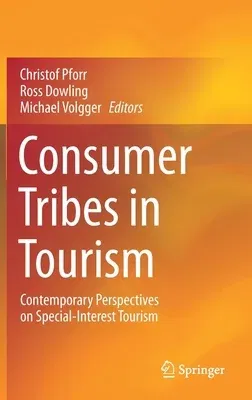This book adopts a collectivist perspective on special interest tourism
consumption, bringing together research on 'special interest tourism'
and 'niche tourism' as well as more recent research into the
interdisciplinary applications of the sociological concept of
neo‐tribes. It promotes a shift in perspective away from special
interest tourism understood as a sum of similarly motivated individuals,
to a collective view of special interest tourists who share common
characteristics (e.g., shared values, beliefs and mutual interests) and
group structures. This approach provides a better understanding of
groupings that are not unified by a common tourism motivation, but
brought together by otherwise conditioned commonalities in actual
behavior triggered by supply-side contexts (e.g., Airbnb). The book
considers tourism micro‐segments as consumer tribes (i.e., as symbolic
communities) in which individuals are embedded and loosely bound
together.
As there is limited research on the collectivist perspective on special
interest tourism consumption, in the first part the book's
conceptual/theoretical discourse contributes to a better understanding
of 'groupings' in tourism behavior but also collectives that are not
unified by a common tourism motivation. Presenting international
examples, the book explores in Part 2 the group culture of a range of
tourist tribes by describing emerging tourism micro-segments,
identifying shared identities, and analyzing their collective
mechanisms.

